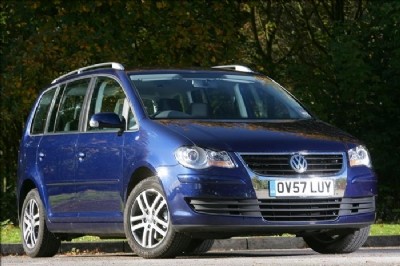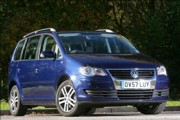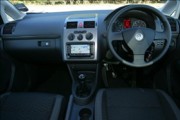Review
I have been losing weight to gain pounds recently.
It is a simple exercise that pays dividends in the long run, although it takes patience and a tendency to be slightly obsessive about running cost savings.
As part of a bid to get the maximum fuel economy out of our long-term seven-seater, I removed the middle row of seats.
This saved about 60kgs from its hefty 1,500-plus kgs and, as they aren’t needed for business journeys, it’s a sensible move.
You simply pull one tag and the seat folds flat, pull another and it flips forward and then pull a couple of latches on its base and the whole thing comes out, weighing less than a well-packed holiday suitcase.
Repeat three times and voilá, enough space to shame a van, with two folding seats in the boot for emergencies.
Last time I did this – in a Renault Espace – I nearly gave myself a hernia.
The reason for this sudden obsession with weight saving was a desire to find out whether the award-winning 1.4-litre TSI engine set-up in the Touran was better than a Prius engine.
In the Volkswagen, a supercharger and turbocharger ensure the diminutive cylinders deliver the punch of a 1.8-litre engine.
In the Prius, batteries provide the extra power to boost its 1.5-litre unit.
Dropping the seats brought the Touran as close as possible to the 1,200kgs kerb weight of the Prius.
My aim was simple.
To squeeze some extra miles per gallon out of the German people carrier.
The Touran has been returning between 30mpg and 36mpg since it arrived on our fleet some 7,900 miles ago and I was convinced it could do more.
So, a new lightweight Touran was promptly pressed into service up and down the motorways.
The weight-saving focus included my right foot and I often kept well below the speed limit and accelerated gently, while maintaining momentum at
roundabouts.
All went well until a trip into London for the Fleet News Awards, followed by an early morning 20-mile trip to the ICFM Conference at the Honda Institute in Colnbrook.
Having paid nearly £20 for two days’ congestion charge, it was ironic that I encountered a three-hour traffic jam leaving the city.
Despite this, the Touran still managed 455 miles on a tank and nearly 39mpg, an impressive performance and one that I am sure could be bettered in a jam-free test.
To give some idea of what this means in the real world, a fleet would save 228 gallons over three-years/60,000-miles if the driver achieved 39mpg average instead of the 34mpg I have been getting.
At current prices, £4.84 a gallon, that’s equivalent to £1,103 over the lifetime of the car.
Compared to the 38.2mpg official fuel consumption figure –always an ambitious target – the saving is just 32 gallons or £154.
But is it better than a Prius?
Well, Fleet News tested an old-model hybrid over the same mileage four years ago and achieved up to 57mpg so, despite all my efforts, the hybrid wins the day.
Current drivers of hybrids may disagree and if so, please register your comments under this article.



















